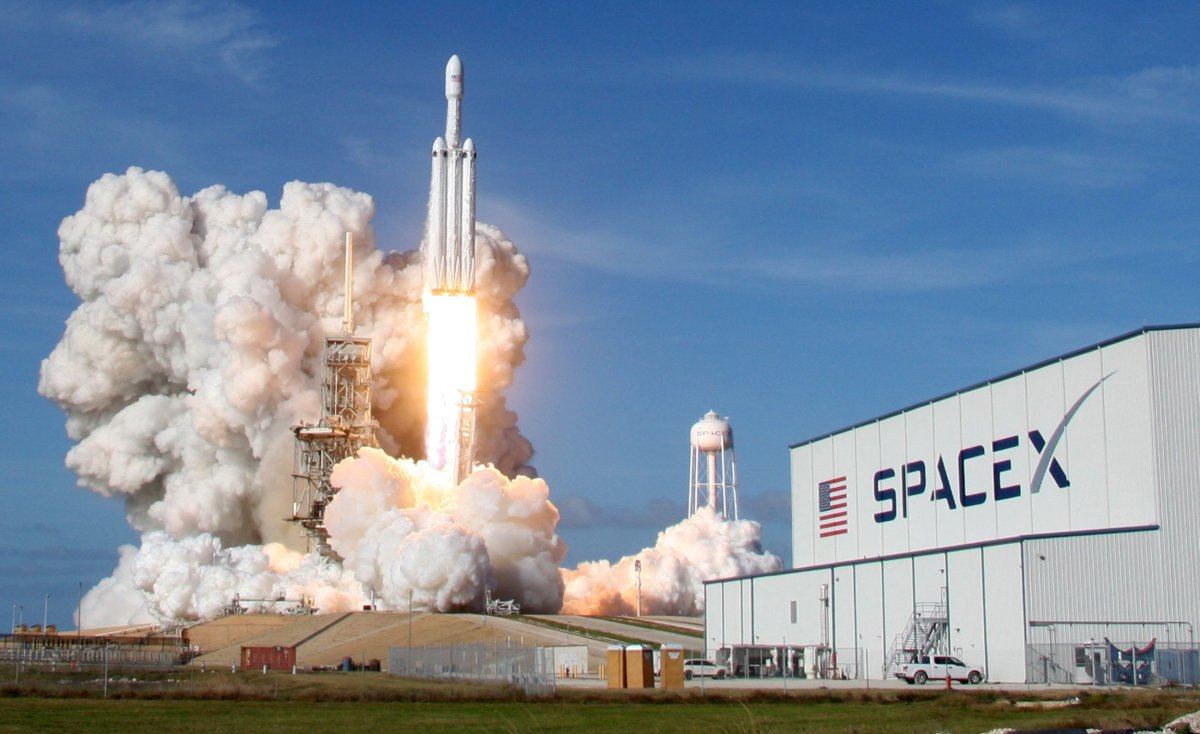In space, no-one can hear you bicker.
But unfortunately for the rest of us down on Planet Earth, the totally grown-up jab Boeing fired at Space X was loud and clear, with the firm lambasting Elon Musk's powerful "Falcon Heavy" rocket as being "too small" to be used by NASA for deep space exploration. And shock horror—Boeing has the solution.
The claim emerged on a website called WatchUsFly.com, created by Boeing as a way to push company news, spotted by Ars Technica. It cited comments made in March by Bill Gerstenmaier, administrator for human exploration and operations for NASA, who said that the agency's space exploration program needs "large-volume, monolithic pieces that are going to require an SLS kind of capability."
The Space Launch System (SLS) rocket is being manufactured by Boeing, which claims it will be "the most powerful rocket of all time" and used to "start a new era of human exploration in deep space." The difference is that Falcon Heavy, which completed a headline-grabbing launch in February, is already operational.
"The Falcon Heavy failed to impress the spaceflight department at NASA," the unnamed Boeing blog post asserted. "Bill Gerstenmaier, the head of spaceflight at NASA, said the Falcon Heavy is 'too small' for NASA's needs. Ouch."
It added: "The SLS can bring equipment into space that is too large for the Falcon Heavy. The Falcon Heavy launch turned heads in February, but SpaceX's rocket is a smaller type of rocket that can't meet NASA's deep space needs. Once the Boeing-built SLS is operational, it will be the most powerful rocket ever built."

But unlike Falcon Heavy, the SLS rocket may not launch until 2020. According to Ars Technica's Eric Berger, NASA could afford up to 27 Falcon Heavy launches a year for the same amount it is spending yearly to make the SLS. Boeing also failed to note Gerstenmaier went on to say that industry competition is healthy.
Space X did not respond to a request for comment. The company is currency building a larger version of its rocket, aptly known as the Big Falcon Rocket (BFR). It is intended to replace Falcon 9, Falcon Heavy and Dragon and, the firm claims, could potentially launch a cargo mission to Mars within four years.
Elon Musk, the founder of Space X, said during an appearance at the National Governors Association last year that he was "a big fan of NASA" but noted that it should make changes to become more effective with funding in the future.
"You have got to have something that's going to fire people up and get them excited," Musk said. "I think it we had a serious goal of having a base on the moon and sending people to Mars and say, 'okay we are going to be outcome orientated, how are we going to do this?' We've got to change the way contracting is done."
"You can't do these cost-plus, sole-source contracts because then the incentive structure is all messed up," he added. "As soon as you don't have any competition, the sense of urgency goes away. And as soon as you make something a cost-plus contract, you're incenting the contractor to maximize the cost of the program, because they get a percentage. They never want that gravy train to end."

Uncommon Knowledge
Newsweek is committed to challenging conventional wisdom and finding connections in the search for common ground.
Newsweek is committed to challenging conventional wisdom and finding connections in the search for common ground.
About the writer
Jason Murdock is a staff reporter for Newsweek.
Based in London, Murdock previously covered cybersecurity for the International Business Times UK ... Read more
To read how Newsweek uses AI as a newsroom tool, Click here.








